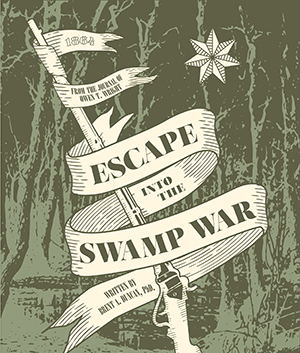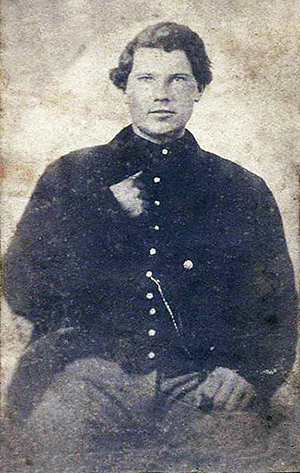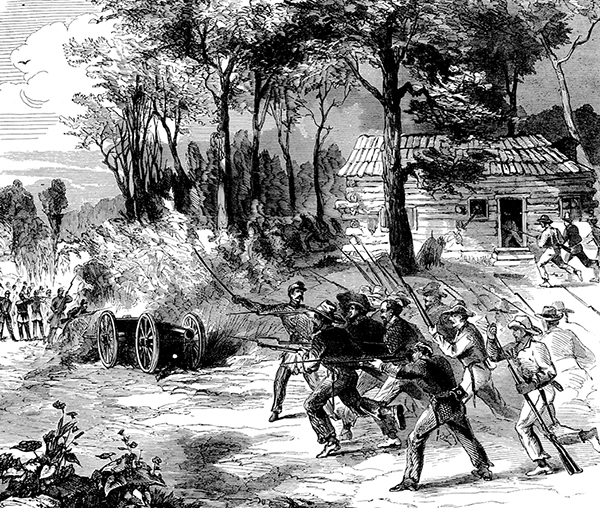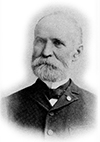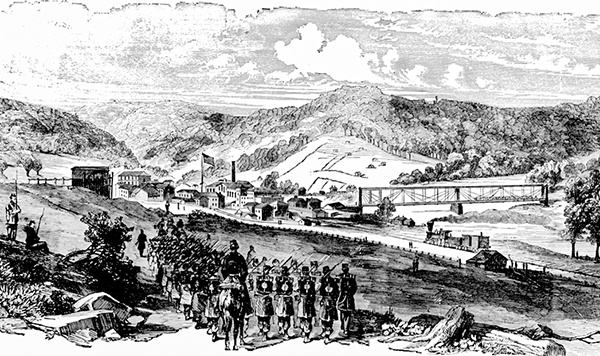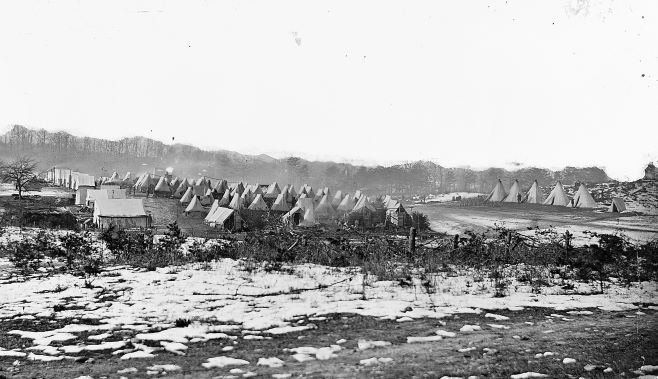While the Union soldiers slept on the summit of Cheat Mountain, Lee surrounded them with 5,500 Confederate troops, Union soldiers from communication and supply lines. At least 1,500 rebels, led by Colonel Albert Rust, Third Arkansas Infantry, were close enough to observe the sleeping Union camp. Observing the fort and the entrenchments of Fort Monroe, Colonel Rust’s Lieutenant-colonel declared: “it would be madness to make an attack.”
Related
- 02 Fearful retribution awaits them: Cheat Summit
- Surrounded on Cheat Summit
- Prettiest fighting ever: Battle of Greenbrier Bridge
- The severest campaign
The usual morning scouting party had scarcely left camp when they came upon Rust’s troops. The rebels seized several of the scouts, but some returned to camp with news of the imminent attack.
The captured scouts convinced Rust there were almost 5,000 Union troops in Cheat Camp, and they had already telegraphed for reinforcements. In reality, fewer than 300 Union soldiers were In the camp, and they had no communication lines.
Combined with their reconnaissance of what Rust called the “impassable abatis” on Cheat Summit, the exaggerated reports of the captured scouts contributed to the Rebels’ “taking to their heels throwing aside guns, clothing, and everything that impeded their progress” when Kimball sent a small group of skirmishers to meet them (Report of Col. Nathan Kimball, Fourteenth Indiana Infantry. Camp, Cheat Mountain Summit, West Virginia).
Tattered from a scouting party and a skirmish the night before, Coons was attempting to return to camp when they encountered another column of rebels who were surrounding Cheat camp. Coons’ force of 90 weary pickets surprised the 3,000 rebels. Like the men under Rust’s command, they bolted. (BEEM)
Colonel Rust declared, “the expedition against Cheat camp a failure.” In apparent frustration about the performance of his men, he wrote: “Some I would prefer to be without on any expedition.” (Report of Col. Albert Rust, Third Arkansas Infantry (C. S. A.) Camp Bartow, September 13, 1861)
When considering their great fortune for having survived certain obliteration with nary a circumstance, Owen and others credited Divine Providence. Some theorized that heavy rains the previous night had wet the Southerner’s powder, making it impossible to fire their guns.



